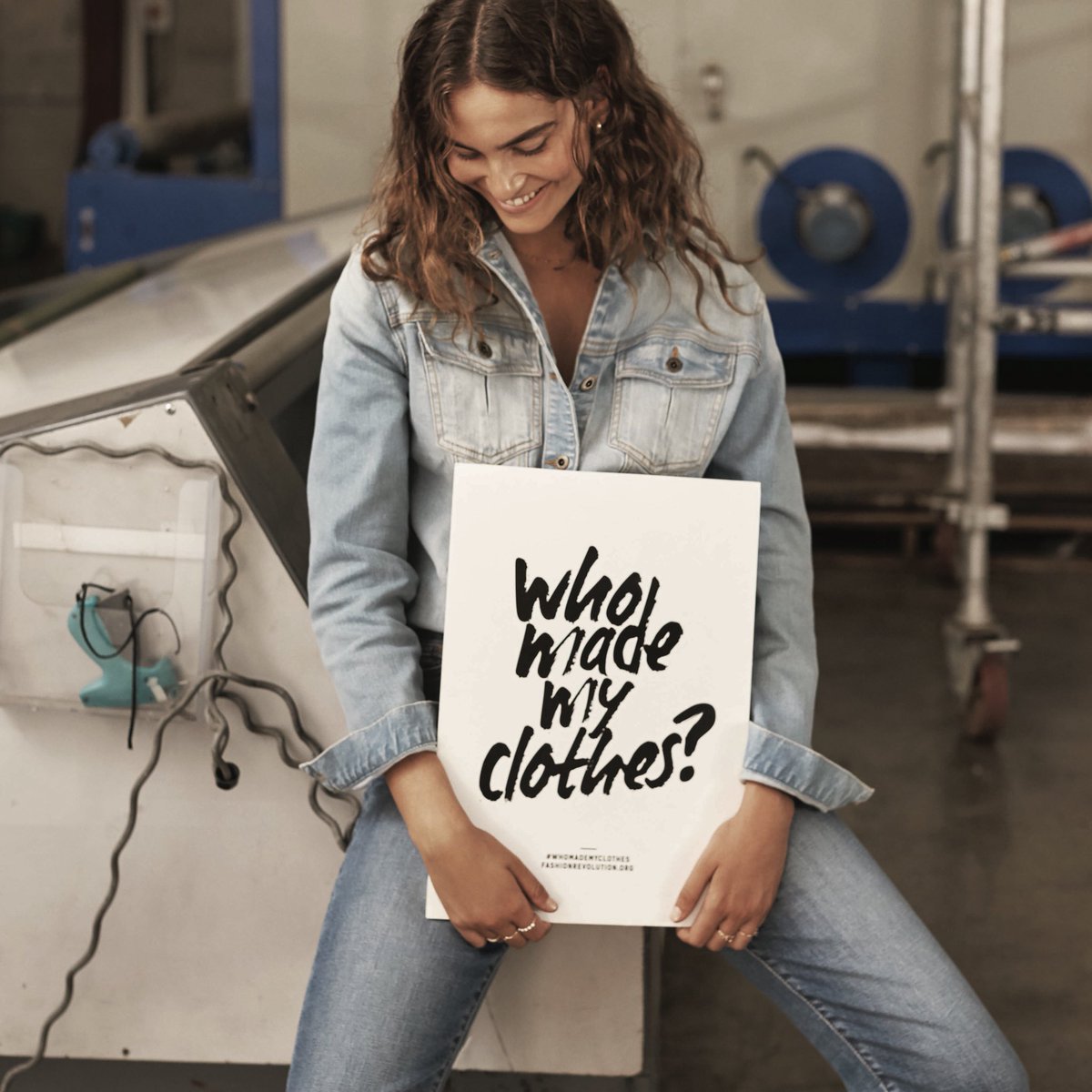Why Are Ethical Brands Boycotting 2022’s Ethical Fashion Guide?

Share This Article
| All products featured on The Wellness Feed are independently selected by our editors for its environmental and ethical impact. However, when you buy something through our retail links, we may earn an affiliate commission. |
Despite #WhoMadeMyClothes and #LivingWage campaigns, transparency is still a big problem in the fashion industry. Over the last few years, Fashion Revolution has showed that the industry’s progress towards transparency is too slow. On the other end are organizations releasing reports aimed at showcasing brands that are making ethical choices. However, one well-known report has come under fire this year. Every year Baptise World Aid releases it’s annual Ethical Fashion Guide. For its 2022 guide the faith-based non-profit assessed 581 brands and their impact across their supply chain to rank them with a score of 0 to 100. But, several of the highest ranking ethical clothing brands on the list including Melbourne-based Etiko and the ethical brand Outland Denim, are boycotting the report.
“If a brand isn’t paying a living wage to textile workers and paying cotton growers a fair price — then they shouldn’t be given a pass mark,” Etiko’s founder and director Nick Savaidis said. According to the report only 10% of fashion brands pay a living wage across their supply chain and the average score across all assessment areas was a dismal 29. “Greater weight needs to be applied to the payment of a living wage for textile workers and the farmers who grow and process the raw materials,” Nick stated.
This isn’t the first time that the rating system used by the Ethical Fashion Guide has been critiqued by a brand. Last year, James Bartle, founder of the ethical jeans brand Outland Denim, posted a video questioning the transparency of brands after his label was listed on Baptise World Aid’s list of Ethical Brands. “How is it possible that certain brands score so highly and yet have a reputation of exploitation on both social and environmental levels?” James said in the public post. Despite his brand’s A+ rating, the founder acknowledged that some brands with similarly good ratings have recently come under fire for greenwashing, human rights violations and consistent use of plastic materials. “Unfortunately, with the current display of the brand rankings, I fear most shoppers looking to use the guide will unknowingly be supporting brands that are not in alignment with their own values,” he continued.

One well known brand on the Ethical Brand’s list received an A in Environmental Sustainability despite the fact that more than 80% of items in their women’s section are plastic-based nylon or polyester. This brand does not show a use of recycled fabrics or natural dyes. Nor does it show other environmental intiatives or goals to improve. Another brand on the list received a B in ‘Supplier Relationships and Human Rights Monitoring’ despite the brand being linked to Uyghur forced labor in the beginning of 2021.
Garment Workers Are Still Fighting For $$$ Millions In Unpaid Wages
James’ admission plays an important role in holding brands accountable. “These fashion giants will leap ahead and use this report as a powerful greenwashing tool,” the designer explains. And, he’s right. Sustainable fashion isn’t about glossy campaigns. It’s about taking measurable actions to improve their environmental and social impact. If larger brands are rewarded for doing wrong, what incentive do they have to change?
The Humanity Behind Our Clothes: Why Ethical Fashion Matters
So, what makes ethical clothing brands… ethical? For Outland Denim, an enterprise built on the idea that employment and economic opportunity can empower women vulnerable to human trafficking, the answer lies in their human impact and transparency. The brand began in 2011 to give jobs to women in need. In their supplier report the brand outlines where raw fabrics come from, along with each place’s certifications. Trims and mills are listed and the brand makes a concerted effort to transparently show their commitment to improve and their ‘zero exploitation’ policy. Elsewhere in the brand’s Sustainability Report for 2020 you can see the brand’s commitment to supporting their suppliers throughout Covid-19 and the questionnaires they routinely gave to factory workers to ensure that living wages and fair working standards were met.
Similarly, Etiko shares its impact as a B-Corp and Fairtrade Certified brand through its Sustainability Impact and Transparency Report. Beginning with the farms that supply their cotton, the brand shows their supply chain and the intiatives they’ve taken to ensure that living wages are verified, waste is minimized and local communities where their products are made are supported.
“Ethical fashion should be holistic and aim to provide minimal harm to people, planet and the animals that reside upon it,” Nick said. Despite being known as an ethical brand that transparently shows its actionable steps to reduce its harm, Etiko is in the top bracket with brands that show no evidence of paying living wages, committing to reverting climate change or progress in tracing raw materials. As frustrating as this can be, the report does offer a deeper insight into the fashion industry’s impact on the environment and vulnerable workers throughout the supply chain. And, as an incentive to show your concern about these issues Baptiste World offers a pre-filled template for consumers to email brands sharing their concerns and asking that brands work towards better policies and transparency.
Use These Templates To Ask Brands To Practice Sustainable Consumption
Impact reports, certifications, concrete data and listing the farms and factories along their supply chain are several ways that a brand can transparently show their impact. Actively sharing this information allows for their to be less room for greenwashing and unsubstantiated claims. And, hopefully more ethical clothing brands that can back their claims in the long run.
